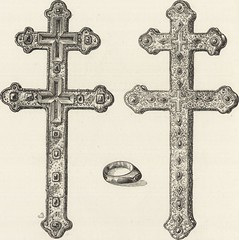Anglų - Lietuvių žodynas
Kompiuterinis žodynas internete nemokamai
pull

Pull tarimas:
/pul/
Pull audio:
Žodžio paaiškinimas anglų kalba:
- verb-transitive: To apply force to so as to cause or tend to cause motion toward the source of the force.
- verb-transitive: To remove from a fixed position; extract: The dentist pulled the tooth.
- verb-transitive: To tug at; jerk or tweak.
- verb-transitive: To rip or tear; rend.
- verb-transitive: To stretch (taffy, for example) repeatedly.
- verb-transitive: To strain (a muscle, for example) injuriously.
- verb-transitive: Informal To attract; draw: a performer who pulls large crowds.
- verb-transitive: Slang To draw out (a weapon) in readiness for use: pull a gun; pulled a knife on me.
- verb-transitive: Informal To remove: pulled the engine; pulled the tainted meat product from the stores.
- verb-transitive: Sports To hit (a ball) so that it moves in the direction away from the dominant hand of the player propelling it, as to the left of a right-handed player.
- verb-transitive: Nautical To operate (an oar) in rowing.
- verb-transitive: Nautical To transport or propel by rowing.
- verb-transitive: Nautical To be rowed by: That boat pulls six oars.
- verb-transitive: To rein in (a horse) to keep it from winning a race.
- verb-transitive: Printing To produce (a print or an impression) from type.
- verb-intransitive: To exert force in moving something toward the source of the force.
- verb-intransitive: To drink or inhale deeply: pulled on the cold beer with gusto; pull on a cigarette.
- verb-intransitive: Nautical To row a boat.
- verb-intransitive: Informal To express or feel great sympathy or empathy: We're pulling for our new president.
- noun: The act or process of pulling.
- noun: Force exerted in pulling or required to overcome resistance in pulling.
- noun: A sustained effort: a long pull across the mountains.
- noun: Something, such as a knob on a drawer, that is used for pulling.
- noun: A deep inhalation or draft, as on a cigarette or of a beverage.
- noun: Slang A means of gaining special advantage; influence: The lobbyist has pull with the senator.
- noun: Informal Ability to draw or attract; appeal: a star with pull at the box office.
- phrasal-verb: pull ahead To move ahead, as in a race.
- phrasal-verb: pull away To move away or backward; withdraw: The limousine pulled away from the curb.
- phrasal-verb: pull away To move ahead: The horse pulled away and took the lead in the race.
- phrasal-verb: pull back To withdraw or retreat.
- phrasal-verb: pull down To demolish; destroy: pull down an old office building.
- phrasal-verb: pull down To reduce to a lower level.
- phrasal-verb: pull down To depress, as in spirits or health.
- phrasal-verb: pull down Informal To draw (money) as wages: pulls down a hefty salary.
- phrasal-verb: pull in To arrive at a destination: We pulled in at midnight.
- phrasal-verb: pull in To rein in; restrain.
- phrasal-verb: pull in To arrest (a criminal suspect, for example).
- phrasal-verb: pull off Informal To perform in spite of difficulties or obstacles; bring off: pulled off a last-minute victory.
- phrasal-verb: pull out To leave or depart: The train pulls out at noon.
- phrasal-verb: pull out To withdraw, as from a situation or commitment: After the crash, many Wall Street investors pulled out.
- phrasal-verb: pull over To bring a vehicle to a stop at a curb or at the side of a road: We pulled over to watch the sunset.
- phrasal-verb: pull over To instruct or force (a motorist) to bring his or her vehicle to a stop at a curb or at the side of a road: The state trooper pulled the speeding motorist over.
- phrasal-verb: pull round To restore or be restored to sound health.
- phrasal-verb: pull through To come or bring successfully through trouble or illness.
- phrasal-verb: pull up To bring or come to a halt.
- phrasal-verb: pull up To move to a position or place ahead, as in a race.
- idiom: pull a fast one Informal To play a trick or perpetrate a fraud.
- idiom: pull (oneself) together To regain one's composure.
- idiom: pull (one's) punches To refrain from deploying all the resources or force at one's disposal: didn't pull any punches during the negotiations.
- idiom: pull (one's) weight To do one's own share, as of work.
- idiom: pull out all the stops Informal To deploy all the resources or force at one's disposal: The Inaugural Committee pulled out all the stops when arranging the ceremonies.
- idiom: pull (someone's) leg To play a joke on; tease or deceive.
- idiom: pull something To carry out a deception or swindle.
- idiom: strings Informal To exert secret control or influence in order to gain an end.
- idiom: pull the plug on Slang To stop supporting or bring to an end: pulled the plug on the new art courses.
- idiom: pull the rug (out) from under Informal To remove all support and assistance from, usually suddenly.
- idiom: pull the string Baseball To throw an off-speed pitch.
- idiom: pull the wool over (someone's) eyes To deceive; hoodwink.
- idiom: pull together To make a joint effort.
- idiom: pull up stakes To clear out; leave: She pulled up stakes in New England and moved to the desert.
Lietuviškos reikšmės:
- pešti
- tampyti
- to pull a bell skambinti
- irti
- (iš)spausdinti
- atmušti kamuolį (žaidžiant)
- to pull at a) tampyti
- traukti dūmą
- to pull back atitraukti
- atsitraukti
- trauk
- apvogti
- apiplėšti
- traukti
- tempti
- vilkti
pull
www.alkonas.lt/zodzio/pull/vertimas
pull at
www.alkonas.lt/zodzio/pull-at/vertimas
pull down
www.alkonas.lt/zodzio/pull-down/vertimas
pull in
www.alkonas.lt/zodzio/pull-in/vertimas
pull off
www.alkonas.lt/zodzio/pull-off/vertimas
pull-on
www.alkonas.lt/zodzio/pull-on/vertimas
pull out
www.alkonas.lt/zodzio/pull-out/vertimas
pull over
www.alkonas.lt/zodzio/pull-over/vertimas
pull through
www.alkonas.lt/zodzio/pull-through/vertimas
pull up
www.alkonas.lt/zodzio/pull-up/vertimas
Žodyno testas
Ką reiškia lietuviškai?
Parinkite teisingą atsakymą
abstinent
/'æbstinənt/
